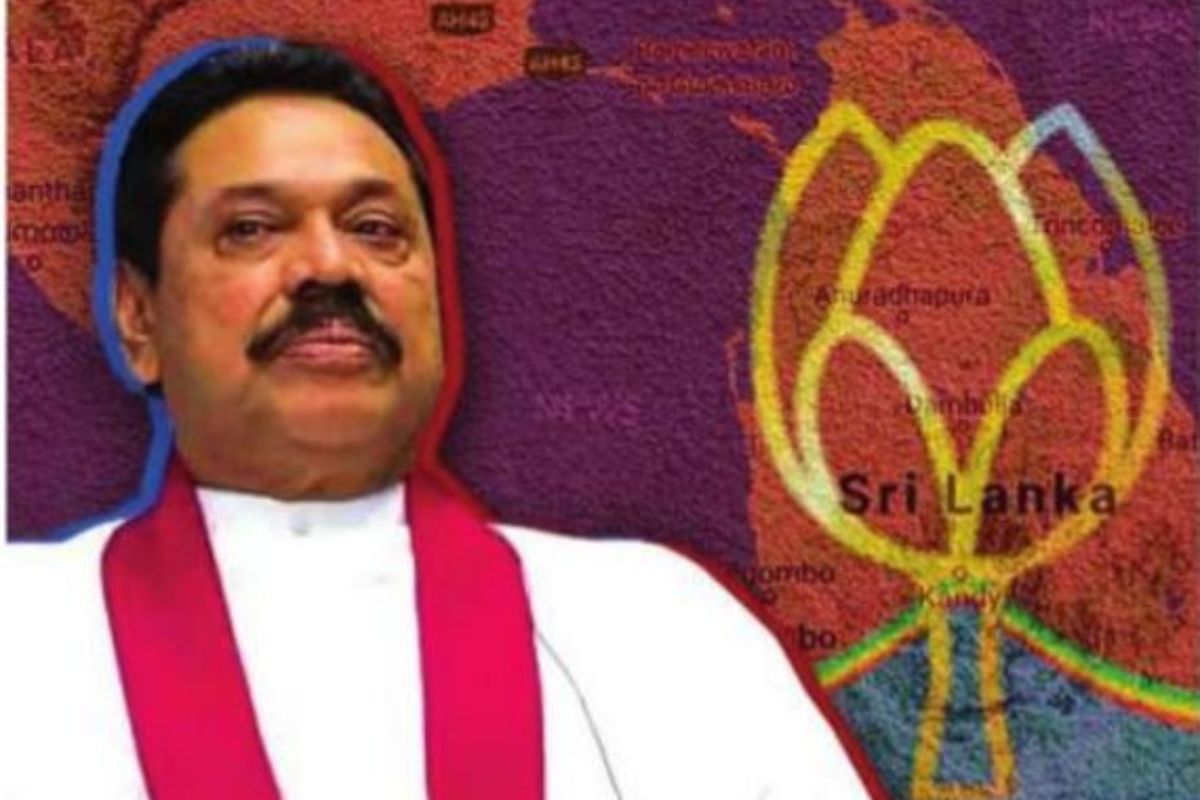On October 6, the United Nations Human Rights Commission (UNHRC) passed a resolution against Sri Lanka with 20 countries voting in favour, 20 against and seven abstaining. Since the end of the war against the Liberation Tigers of Tamil Eelam (LTTE) in 2009, this is the 10th resolution that has been passed against Sri Lanka to fix accountability for human rights violations committed during the last stages of the war. In September this year, the Tamils marked 2,000 days of protest seeking justice for their loved ones who disappeared during the war and after.
It is important to note that while the international community had expressed its willingness to extend help for rehabilitation and post-war reconstruction in the May 2009 UNHRC resolution; in 2012, they realised that Sri Lanka was not sincere in fulfilling its obligations. India, which supported Sri Lanka in the 2009 resolution, by then had realised that the Sinhala nationalist government under President Mahinda Rajapakse was not interested in a political solution to the ethnic crisis that saw 30 years of civil war, and so in the 2012 UNHRC resolution, it voted against.
Advertisement
Following the war, reports emerged of shelling in the no-firing zone, and after much international hue and cry, the Sri Lankan government constituted the Lesson Learnt and Reconciliation Commission and submitted its report after due deliberation. Though the Tamils were not satisfied with the commission’s report submitted in 2011, as it largely exonerated the security forces from rights violations during the war, a panel appointed by the then UN secretary-general Ban Ki-moon found serious human rights violations and recommended the appointment of an independent commission to investigate.
In 2013, the Sri Lankan government appointed a Presidential Commission to Investigate Complaints Regarding Missing Persons look into the cases of missing persons from January 1983 to May 2009. While more than 20,000 complaints were received, it failed to address accountability for war crimes, nor did it bring to light the cases of those who had disappeared. The poorly staffed Lesson Learnt and Reconciliation Commission was not in a position to investigate each case and fix responsibility.
In 2015, Sri Lanka co-sponsored Resolution 30/1 on the promotion of reconciliation. The UNHRC resolution asked the government to set up special tribunals or courts with international judges and reparations for victims. The issue of appointing judges from other countries to the independent commission became controversial.
In 2018, after a lot of reluctance and division within the coalition government, the government appointed the Office on Missing Persons. But with a change of government in 2019, newly elected President Gotabaya Rajapaksa, brother of his predecessor Mahinda Rajapaksa, categorically stated he would not honour the previous government’s international commitments to fix accountability for human rights violations.
In 2020, President Gotabaya said all those missing were dead and the relatives would be issued death certificates. It is important to bring closure to the issue of the disappeared, but the families will not accept they are dead without proof. While the issue of fixing accountability for war crimes and missing persons has not made any progress, the government has not taken any steps to resolve the political aspect of the conflict either.
After 2013, there has not been an election to the Northern Provincial Council. The previous Mathripala-Wickramasinghe government’s promise to introduce a new constitution to address the political grievances of the Tamils and the preservation of their language was scuttled by the Buddhist clergy and ultra-nationalists. The acrimonious relations between the then president Mathripala Sirisena and prime minister Ranil Wickramasinghe almost made the government non-functional. It only managed to dilute some of the powers of the directly elected Executive Presidency and transfer them to the Prime Minister’s Office and Parliament.
That became a root cause of the political fallout between Sirisena and Wickramasinghe. The ethnic issue has festered since. The post-war period saw attacks on Muslims by radical Buddhist groups in which the state was complicit. This period also witnessed the radicalisation of Muslims which precipitated the Easter bombing.
Given the dire economic situation, the current government’s priority is now focused on reviving the bankrupt economy. President Ranil Wickramasinghe, the sole representative of his party, the United National Party, has been elected with the support of the Sri Lanka Podujana Peramuna. He is not in a position to address the ethnic issue as the common people continue to face economic hardship, and the situation will not improve as there will be budget cuts. It has been more than 70 years since Sri Lanka’s independence from Britain.
The Tamils, who occupied important government positions during the British era and were highly educated, have lost their privileges through state-sponsored marginalisation, discrimination and pogroms. The end of the war against the LTTE terrorists is projected as a defeat of the Tamils who should not be given any political concessions as they have lost. The economic path to a political solution, through the development of infrastructure with the belief that economic prosperity will erase ethnic grievances, has landed Sri Lanka in acute debt and the consequent crisis.
Nine UNHRC resolutions on Sri Lanka only show that nothing has changed in the country. Sinhala nationalism that was weaponised against the Tamils has left very little space for political solutions. And it is only through international pressure that the Sri Lankan state will deliver equality to its Tamil citizens. There is an urgent need for reconciliation and healing of the wounds of the past to ensure that the future is free from the guilt of majoritarian subjugation and injustice.











